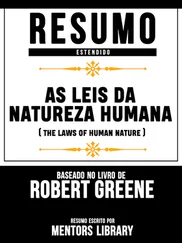For a long time, evolutionary biologists thought of natural selection as somehow promoting “the good of the species.” In fact, natural selection operates initially on individual animals and plants. Natural selection is not just a struggle between species (entire populations), nor is it just a struggle between individuals of different species, nor just between conspecific individuals of the same age and sex. Natural selection can also be a struggle between parents and their offspring or a struggle between mates, because the self-interests of parents and their offspring, or of father and mother, may not coincide. What makes individuals of one age and sex successful at transmitting their genes may not increase the success of other classes of individuals.
In particular, while natural selection favors both males and females that leave many offspring, the best strategy for doing so may be different for fathers and mothers. That generates a built-in conflict between the parents, a conclusion that all too many humans don't need scientists to reveal to them. We make jokes about the battle of the sexes, but the battle is neither a joke nor an aberrant accident of how individual father or mothers behave on particular occasions. It is indeed perfectly true that behavior that is in a male's genetic interests may not necessarily be in the interests of his female co-parent, and vice versa. That cruel fact is one of the fundamental causes of human misery.
Consider again the case of the male and female that have just copulated to produce a fertilized egg and now face the “choice” of what to do next. If the egg has some chance of surviving unassisted, and if both the mother and the father could produce many more fertilized eggs in the time that they would devote to tending that first fertilized egg, then the interests of the mother and father coincide in deserting the egg. But now suppose that the newly fertilized, laid, or hatched egg or newborn offspring has absolutely zero chance of surviving unless it is cared for by one parent. Then there is indeed a conflict of interest. Should one parent succeed in foisting the obligation of parental care onto the other parent and then going off in search of a new sex partner, then the foister will have advanced her or his genetic interests at the expense of the abandoned parent. The foister will really promote his or her selfish evolutionary goals by deserting his or her mate and offspring.
In such cases when care by one parent is essential for offspring survival, child-rearing can be thought of as a cold-blooded race between mother and father to be the first to desert the other and their mutual offspring and to get on with the business of producing more babies. Whether it actually pays you to desert depends on whether you can count on your old mate to finish rearing the kids, and whether you are then likely to find a receptive new mate. It's as if, at the moment of fertilization, the mother and father play a game of chicken, stare at each other, and simultaneously say, “I am going to walk off and find a new partner, and you can care for this embryo if you want to, but even if you don't, I won't!” If both partners call each other's bluff in that race to desert their embryo, then the embryo dies and both parents lose the game of chicken. Which parent is more likely to back down?
The answer depends on such considerations as which parent has more invested in the fertilized egg, and which parent has hotter alternative prospects. As I said before, neither parent makes a conscious calculation; the actions of each parent are instead programmed genetically by natural selection into the anatomy and instincts of their sex. In many animal species the female backs down and becomes sole parent while the male deserts, but in other species the male assumes responsibility and the female deserts, and in still other species both parents assume shared responsibility. Those varying outcomes depend on three interrelated sets of factors whose differences between the sexes vary among species: investment in the already fertilized embryo or egg; alternative opportunities that would be foreclosed by further care of the already fertilized embryo or egg; and confidence in the paternity or maternity of the embryo or egg.
All of us know from experience that we are much more reluctant to walk away from an ongoing enterprise in which we have invested a lot than from one in which we have invested only a little. That's true of our investments in human relationships, in business projects, or in the stock market. It's true regardless of whether our investment is in the form of money, time, or effort. We lightly end a relationship that turns bad on the first date, and we stop trying to construct from parts a cheap toy when we hit a snag within a few minutes. But we agonize over ending a twenty-five-year marriage or an expensive house remodeling.
The same principle applies to parental investment in potential offspring. Even at the moment when an egg is fertilized by a sperm, the resulting fertilized embryo generally represents a greater investment for the female than for the male, because in most animal species the egg is much larger than the sperm. While both eggs and sperm contain chromosomes, the egg in addition must contain enough nutrients and metabolic machinery to support the embryo's further development for some time, at least until the embryo can start feeding itself. Sperm, in contrast, need contain only a flagellar motor and sufficient energy to drive that motor and support swimming for at most a few days. As a result, a mature human egg has roughly one million times the mass of the sperm that fertilizes it; the corresponding factor for kiwis is one million billion. Hence a fertilized embryo, viewed simply as an early-stage construction project, represents an utterly trivial investment of its father's body mass compared to its mother's. But that doesn't mean that the female has automatically lost the game of chicken before the moment of conception. Along with the one sperm that fertilized the egg, the male may have produced several hundred million other sperm in the ejaculate, so that his total investment may be not dissimilar to the female's.
The act of fertilizing an egg is described as either internal or external, depending on whether it takes place inside or outside the female's body. External fertilization characterizes most species of fish and amphibia. For example, in most fish species a female and a nearby male simultaneously discharge their eggs and sperm into the water, where fertilization occurs. With external fertilization, the female's obligate investment ends at the moment she extrudes the eggs. The embryos may then be left to float away and fend for themselves without parental care, or they may receive care from one parent, depending on the species.
More familiar to humans is internal fertilization, the male's injection of sperm (for example, via an intromittive penis) into the female's body. What happens next in most species is that the female does not immediately extrude the embryos but retains them in her body for a period of development until they are closer to the stage when they can survive by themselves. The offspring may eventually be packaged for release within a protective eggshell, together with an energy supply in the form of yolk-as in all birds, many reptiles, and monotreme mammals (the platypus and echidnas of Australia and New Guinea). Alternatively, the embryo may continue to grow within the mother until the embryo is “born” without an eggshell instead of being “laid” as an egg. That alternative, termed vi-vipary (Latin for “live birth”), characterizes us and all other mammals except monotremes, plus some fish, reptiles, and amphibia. Vivipary requires specialized internal structures-of which the mammalian placenta is the most complex-for the transfer of nutrients from the mother to her developing embryo and the transfer of wastes from embryo to mother.
Читать дальше











